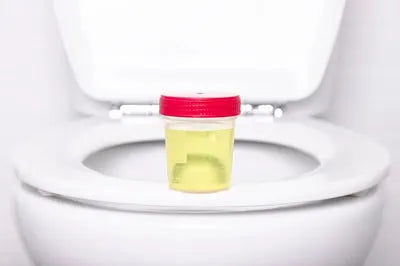In the realm of urological challenges, a neurogenic bladder is a condition that demands careful attention, management, and understanding. This intricate condition can significantly affect one's quality of life, but with the right knowledge and coping strategies, individuals can lead fulfilling lives. Small changes such as a timely neurogenic bladder diagnosis and the following of a specially crafted for neurogenic bladder diet can also go a long way. In this comprehensive guide, we will delve into what a neurogenic bladder is, its symptoms, causes, and most importantly, practical tips and coping strategies to help you navigate this condition.
What is a Neurogenic Bladder?
To comprehend what a neurogenic bladder is, we must first understand the role of the nervous system in urinary function. The urinary bladder relies on a well-coordinated interplay of muscles and nerves to store and release urine.
A neurogenic bladder is a condition where this harmonious coordination is disrupted due to damage or dysfunction of the nervous system. Causes of neurogenic bladder include various factors, such as multiple sclerosis, spinal cord injuries, or conditions like diabetes.
Neurogenic bladder symptoms may manifest in various ways, including:
• Frequent urination.
• Urinary incontinence.
• Urinary retention (inability to empty the bladder completely).
• Nocturia (waking up at night to urinate).
• Recurrent urinary tract infections (UTIs).
Lifestyle Adaptations for Neurogenic Bladder
No matter the underlying causes of neurological disorders leading to neurogenic bladder dysfunction, living with the condition may be difficult. It is recommended that sufferers try lifestyle changes before going on neurogenic bladder medications. Here are some practical tips to enhance your daily life:
a. Fluid Management: Monitor your fluid intake to reduce the risk of overfilling your bladder. However, ensure you maintain adequate hydration.
b. Scheduled Voiding: Establish a regular voiding schedule to empty your bladder at specific intervals. This can help minimize incontinence episodes.
c. Diet: A neurogenic bladder diet may involve limiting caffeine and alcohol intake, as they can irritate the bladder. Consider consulting a healthcare provider or nutritionist for personalized advice.
d. Pelvic Floor Exercises: Strengthening your pelvic floor muscles through exercises like Kegels can assist in bladder control.
e. Medications: Depending on the specific condition causing your neurogenic bladder, your healthcare provider may prescribe medications to manage symptoms and improve bladder function.
Coping Strategies for Social Situations
Social situations can be challenging when dealing with a neurogenic bladder, but these strategies can help you navigate them with confidence:
a. Plan Ahead: Before attending an event or outing, locate the nearest restroom and familiarize yourself with the facilities.
b. Communication: Openly communicate your condition with close friends and family, so they can provide support and understanding.
c. Portable Supplies: Carry necessary supplies like extra clothing, disposable undergarments, or Friends diapers, which offer exceptional comfort and absorbency for individuals dealing with incontinence.
d. Confidence: Confidence is key. Remember that you are not alone in facing these challenges, and many others share similar experiences.
e. Support Groups: Consider joining support groups or seeking counseling to connect with individuals who understand what you're going through.
When to Seek Medical Help for a Neurogenic Bladder?
Understanding when to seek medical help is crucial for managing neurogenic bladder problem symptoms effectively. Here are some situations that warrant immediate need for neurogenic bladder treatment:
• Severe pain or discomfort: If you experience severe pain, discomfort, or bleeding related to your bladder, seek medical help promptly.
• Recurrent UTIs: Frequent urinary tract infections can be a sign of an underlying issue that needs medical evaluation.
• Worsening symptoms: If your symptoms worsen despite following lifestyle modifications and medications, consult your healthcare provider.
• Changes in bladder function: Any significant changes in your bladder function should be discussed with a medical professional.
• New neurological symptoms: The development of new neurological symptoms, such as weakness or numbness, requires prompt evaluation.
Conclusion
In conclusion, a neurogenic bladder can present significant challenges, but with the right knowledge and coping strategies, you can manage this condition effectively. Remember that seeking medical guidance is essential for a tailored treatment plan.
Throughout your journey, products like Friends diapers can provide comfort and confidence in social situations, ensuring you continue to engage in life's activities with peace of mind.
Managing a neurogenic bladder is a continuous process, but by making lifestyle adaptations, seeking support, and staying informed, you can lead a fulfilling life while effectively managing this condition.
Sources:
• "Neurogenic Bladder." National Institute of Diabetes and Digestive and Kidney Diseases (NIDDK), www.niddk.nih.gov/health-information/urologic-diseases/neurogenic-bladder.
• Abrams, P., Cardozo, L., Fall, M., et al. (2003). "The standardisation of terminology in lower urinary tract function: report from the standardisation sub-committee of the International Continence Society." Neurourology and Urodynamics, 21(2), 167-178.
• Wein, A. J., Kavoussi, L. R., Partin, A. W., & Peters, C. A. (2015). "Campbell-Walsh Urology." Elsevier.
FAQs
What are some common symptoms of a neurogenic bladder dysfunction?
Neurogenic bladder symptoms include urinary incontinence, difficulty emptying the bladder, nocturia (nighttime urination), and an increased risk of recurrent urinary tract infections (UTIs).
How is a neurogenic bladder diagnosed, and what tests are involved?
The first level of neurogenic bladder treatment is diagnosis through a physical exam, urodynamic testing, and imaging studies. Medical history and symptoms guide the process of neurogenic bladder diagnosis.
Are there specific exercises or techniques that can improve bladder control for those with a neurogenic bladder?
Pelvic floor exercises, biofeedback therapy, and fluid management can improve bladder control in those with a neurogenic bladder undergoing neurogenic bladder treatment.
Can stress and anxiety worsen symptoms of a neurogenic bladder?
Stress and anxiety can worsen neurogenic bladder symptoms, leading to increased urgency and incontinence.
What are some precautions to take to prevent complications associated with a neurogenic bladder?
Prevent complications with a neurogenic bladder by maintaining a specific diet, following prescribed treatments, staying hydrated, adhering to a voiding regimen, and promptly seeking medical attention for new or worsening symptoms related to neurogenic bladder dysfunction. Consider using Friends Diapers for added comfort and confidence.















